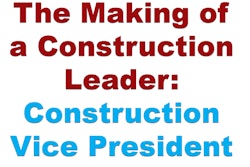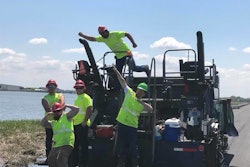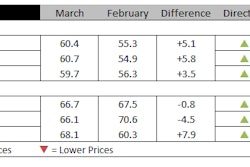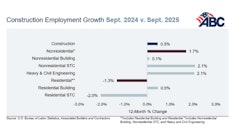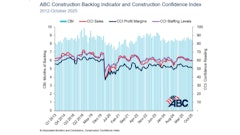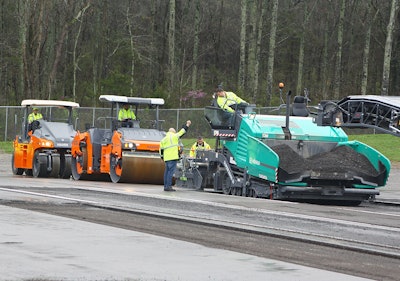
First, the bad news: The American Society of Civil Engineers estimates we need to spend over $4.5 trillion by 2025 to improve the state of the country’s roads, bridges, airports and more.
But there’s good news: Just last week, House Speaker Nancy Pelosi said at a Democratic retreat that she thinks President Trump would be receptive to an infrastructure package of between $1 trillion and $2 trillion which would help spur the investment in our aging infrastructure.
Still, more bad news: Even if our government can come to some bipartisan solution on funding an infrastructure plan, who will be available to do the work when over 78% of construction companies are already having a hard time finding skilled workers? What’s worse is that 2.7 million infrastructure workers are projected to retire or permanently leave their positions over the next decade.
So how will are we going fill those jobs? That my friends is the $1.5 trillion dollar question.
2018 estimates from the Bureau of Labor Statistics (BLS) Occupational Employment survey found that nearly 17.2 million workers—or about 12 percent of all workers nationally—are employed in infrastructure jobs, concentrated in 94 different occupations. Taken together, infrastructure jobs employ more workers than retail (16.0 million) or manufacturing (12.6 million), among other sectors.
People tend to frown upon these jobs in infrastructure because young people are sold "fairy tales" that a college degree is the only way to a successful future. Here are some reasons why a traditional college degree is no longer the definitive answer:
1. College = Jobs
Wrong. Young people today have been taught that the only way to earn a good living is to get a college education. That’s not always true. What is true is that America is currently sitting with $1.5 trillion of college degree student loans on the books for jobs that tend not to exist anymore. And this is where we reach the term “skills-gap.”
Without a workforce willing to learn the skills for a job that actually exists, our country is currently sitting with a gap of nearly 7 million unfilled jobs. 75% of these open jobs don’t require a four year degree. These jobs require work ethic, training and a will to succeed.
In fact, in 2018, just 13 percent of infrastructure workers had a bachelor’s degree or higher, compared to 37 percent of all workers nationally. And more than half—54 percent—had a high school diploma or less.
2. College = Higher Pay
Not entirely true. With many young people struggling to find jobs to make ends meet, workers in infrastructure are given the opportunities to thrive right out of the gate. The same BLS Survey reports that even lower-skilled workers or those just starting in their careers can gain a stronger economic foothold than those with a college degree. In fact, workers at these levels typically earn 30 percent higher wages compared to all occupations nationally; in 2018, infrastructure workers earned annual wages of $27,590 and $33,920 at the 10th and 25th percentile, respectively. By comparison all workers nationally earned $20,690 and $25,740 - and probably still had college debt to pay back.
3. College = A Guaranteed Better Life
Nope. Still, that’s what many parents and high school educators want you to believe. In reality, all it takes to live a better life after high school is sheer will to get out there and do a job, and do it well. Raising awareness of the employment opportunities available in the construction industry begins with targeted outreach at the local K-12 level in order to drive impactful results and – ultimately – build an engaged and productive workforce.
In the asphalt industry, the jobs are there for the taking. The vast majority of contractors and equipment manufacturers are committed to helping incoming workers learn, grow and develop on the job – all while providing quality wages and competitive benefits.
Each year in October, we compile a list of training opportunities for asphalt contractors. We figure with the season just beginning, it’s a good time to re-share those opportunities here and provide a list of upcoming opportunities to the industry.
Let’s build tomorrow’s workforce today:
https://cee.fiu.edu/academics/programs/fiu-paving-academy/
https://www.brookfieldengineering.com/services/training-programs-and-seminars
https://www.volvoce.com/united-states/en-us/services/road-institute/
https://www.roadtec.com/training
https://www.wirtgen-group.com/america/en-us/customer-support/know-how/training-program/





